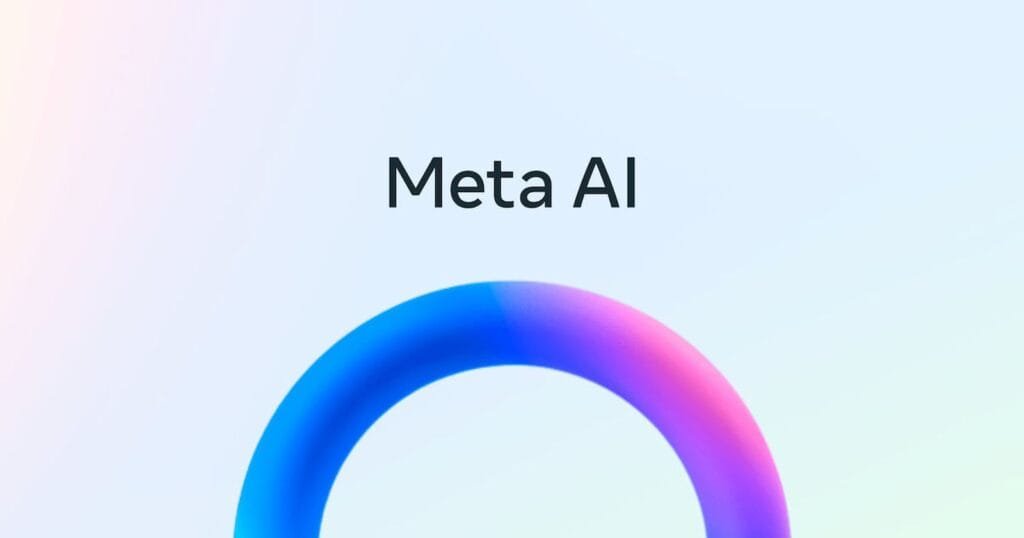Tech Giant Enters the AI Assistant Arena
Meta, the parent company of social media platforms Facebook, Instagram, and WhatsApp, is preparing to launch a dedicated artificial intelligence application that will directly compete with established AI assistants like OpenAI’s ChatGPT, Google’s Gemini, and Microsoft’s Copilot, according to CNBC reports.
The standalone Meta AI app is scheduled for release in the second quarter of 2025, representing a significant step in CEO Mark Zuckerberg’s ambitious strategy to establish Meta as the industry leader in artificial intelligence by the end of that year. This move demonstrates Meta’s commitment to expanding beyond its traditional social media focus and establishing itself as a major player in the rapidly evolving AI landscape.
From Integration to Independence
Currently, Meta’s AI technology exists as an integrated feature within the company’s existing platforms, primarily as part of the search functionality in Facebook and Instagram. While this implementation offers generative capabilities similar to other AI assistants, Meta believes that creating a dedicated application will provide users with opportunities for deeper and more comprehensive interactions with its AI assistant.
The transition from an embedded feature to a standalone product suggests that Meta sees significant potential in creating a more immersive and versatile AI experience outside the constraints of its social media frameworks. This strategic shift could allow the company to develop more specialized AI functionalities tailored to specific user needs rather than limiting them to social media contexts.
Exploring Monetization Possibilities
While Meta has confirmed that the basic version of its AI assistant will remain free to users, following the same model as its current integrated version, the company is also exploring premium options. Meta plans to test a subscription-based service that would offer enhanced capabilities beyond those available in the free version.
This dual approach to monetization aligns with industry trends, where companies increasingly offer tiered service models that combine free access with premium subscription options. By maintaining a free entry point while developing advanced paid features, Meta could maximize user adoption while creating new revenue streams in the competitive AI assistant market.
Expanding the Digital Ecosystem
The forthcoming AI application will join Meta’s existing suite of popular apps, including its core social media platforms. Reports have also indicated that the company may be developing a standalone Reels app, potentially extracting the popular short-form video feature from Instagram into its own dedicated product.
These developments suggest a broader strategy of platform diversification, with Meta potentially moving toward a more segmented approach to its digital offerings. Rather than consolidating all features within a few central applications, the company appears to be exploring the benefits of purpose-built applications designed to excel at specific functions.
The AI Assistant Landscape: Context and Competition
As Meta prepares to enter the standalone AI assistant market, it faces formidable competition from well-established players who have already captured significant market share. OpenAI’s ChatGPT pioneered the modern conversational AI assistant category and continues to evolve with increasingly sophisticated capabilities. Google’s Gemini represents the search giant’s entry into the field, leveraging its vast data resources and AI research expertise. Microsoft’s Copilot has integrated AI assistance across its productivity suite, offering specialized tools for various professional contexts.
Meta’s entry into this competitive landscape will require distinctive features and capabilities to differentiate its offering from existing alternatives. The company’s extensive social data could potentially provide unique insights and functionalities that competitors cannot match, particularly in social and communication contexts.
Glossary of Key Terms
Generative AI: Artificial intelligence systems capable of creating original content, including text, images, and other media, based on patterns learned from training data.
AI Assistant: Software applications powered by artificial intelligence that can understand natural language and perform tasks, answer questions, or generate content based on user requests.
Large Language Model (LLM): A type of AI system trained on vast amounts of text data that can understand, generate, and manipulate language in ways that mimic human capabilities.
Multimodal AI: AI systems that can process and generate multiple types of data, such as text, images, and audio, often simultaneously.
Subscription Model: A business approach where users pay recurring fees to access premium features or services, as opposed to one-time purchases or free access.
Source: facebook.com/metaai




